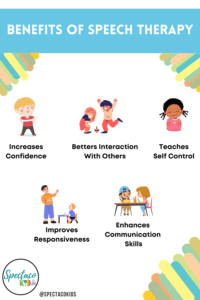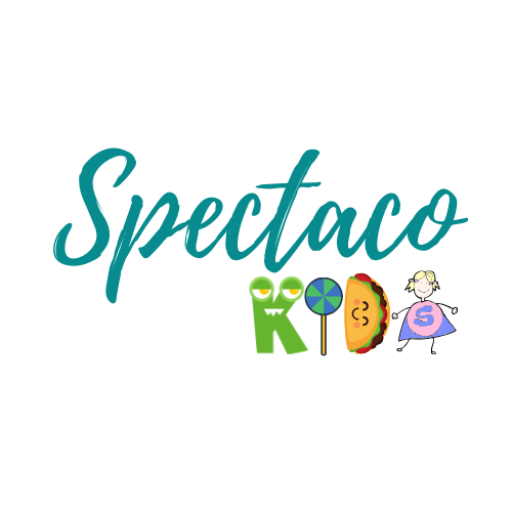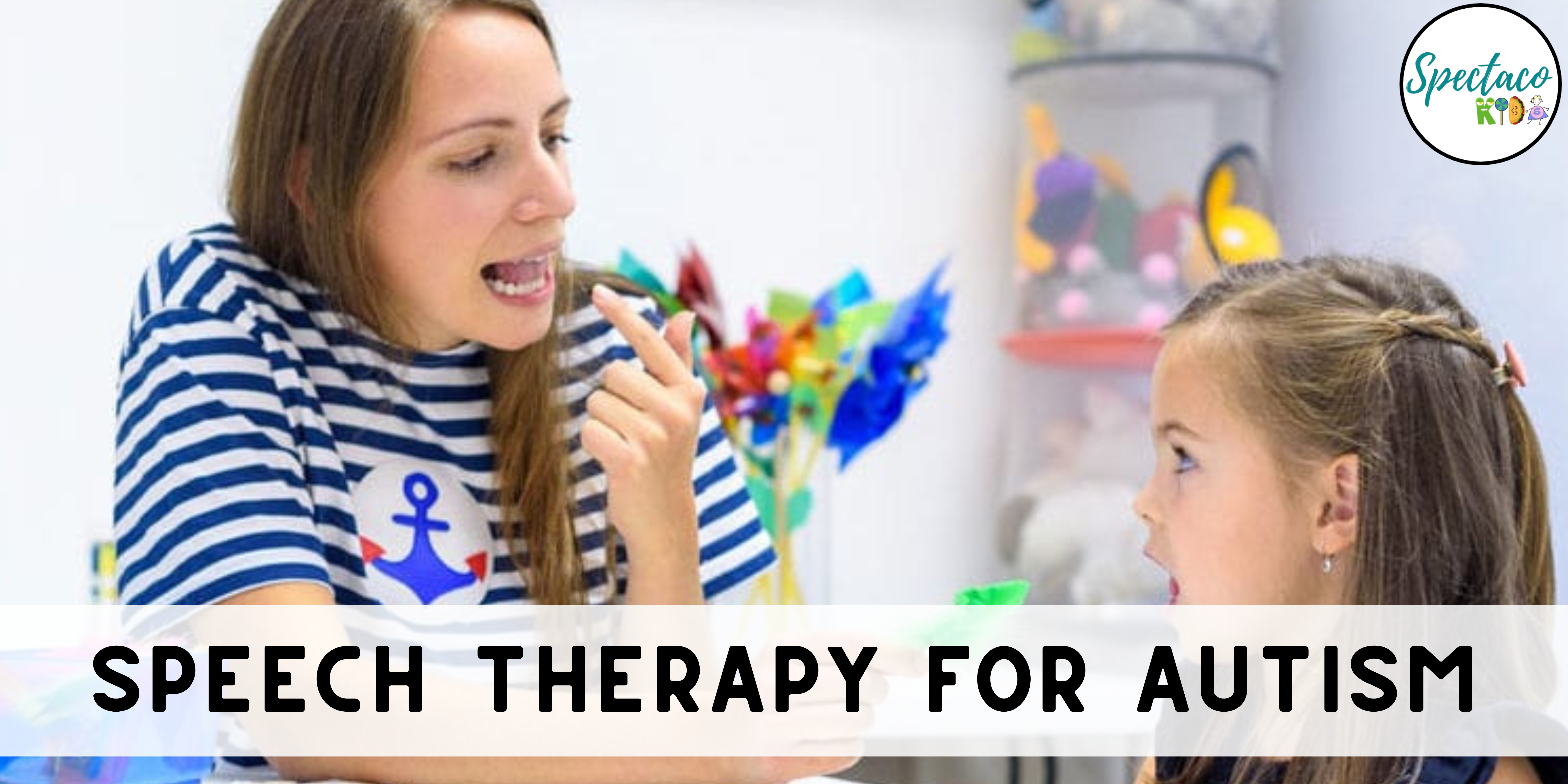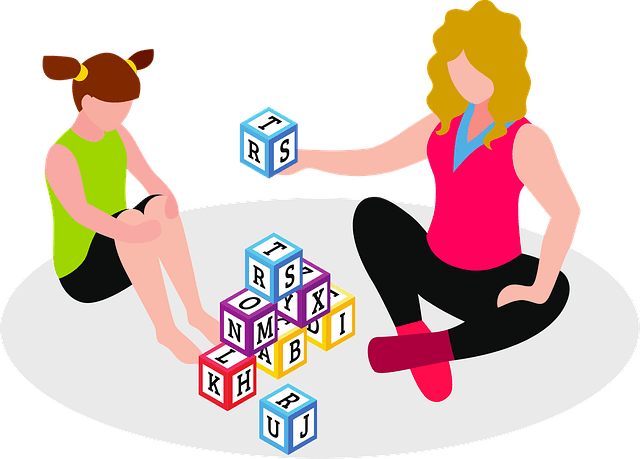Individuals on the spectrum face a lot of difficulty in communicating. Lack of confidence, sensitivity and speech-related problems can sometimes make situations potentially stressful for them. For this reason, speech therapy is highly recommended. Not only does it improve speaking skills, but also enhances communication and interactive skills. Speech therapy aims to target multiple communication skills, both verbal and non-verbal, like for example, making eye contact or understanding gestures and so much more.
What Speech and Communication Issues Do Autistic Individuals Face?
Some of the issues revolving around interacting with others and speech are listed below:
- Not talking at all
- Babbling
- Repeating another person’s word (called “Echolalia”)
- Grunting, crying or making other such harsh sounds
- Humming or talking in a musical tone
- Using foreign sounding words
- Speaking in an unexpressive manner
Meanwhile, communication issues such as the ones listed below are also common:

- Difficulty making eye contact and gestures
- Trouble understanding words in a different way from how they were taught
- Little understanding of the meaning of words/symbols
- Lack of creative language
- Memorizing things heard without knowing what they mean
- Echolalia
How Is Speech Therapy Essential To The Treatment Of Autism?
Children on the spectrum must work harder to gain skills that others have. Speech therapy is not just limited to working on their speaking skills but also their ability to use language to communicate effectively and convey what they want to say or show. Conversing without much trouble is what speech therapy aims to achieve. Speech therapy also enhances an individual’s ability to read and understand facial expressions, body language, tone, and cues from others – both verbal and non-verbal.
What Does The Speech Therapy Process Encompass?
Speech language pathologists are therapists that specialize in treating language issues and other speech-related disorders. They are the prime conductors of the therapy series. It is best that autism is diagnosed at earlier stages so that treatment can begin immediately. Once a therapist is consulted, they may involve other experts also to provide the best support possible. Your speech therapist will work closely with the concerned individual’s family members and school teachers to help create a better environment for your child, so that if needed, help can be offered instantly no matter where the child is. Hence, educating those closest to the individual is of utmost importance. If an autistic individual cannot speak or has a grave speech impediment, then speech therapists may suggest alternatives to speech, including:
- Signing or Typing
- Electronic “talkers”
- Using visuals instead of words to enable children to communicate
- Exercising facial muscles and lips to improve speech articulation
- Have people sing songs that match the rhythm and flow of sentences

How Beneficial Is Speech Therapy For Those With ASD?
Indeed, speech therapy has proven to be an effective tool in improving communication, thus, making it easier for those on the spectrum to carry out their day to day tasks with ease. Research shows that those who undergo the most speech therapy are more successful later. Some of the ways in which speech therapy is beneficial to individuals are as follows:
- Enhances verbal and non-verbal communication skills
- Children are better equipped to articulate words well
- Better understanding of what people are hinting at or saying
- Children can become “conversation starters”
- Growing conversational skills
- Enjoy playing and interacting with others more
- Gain Confidence
- Learn Self-Control
When Should Speech Therapy Begin?
The best time to begin speech therapy is after autism has been detected in your little one. ASD is usually absent before age 3 and speech impediments and delays can only be identified until after 18 months of age. In some cases, however, autism maybe identified as early as 10 months of age. Hence, beginning speech therapy at an earlier age, where children are learning and absorbing information the most is crucial for better results later.
What Are Some Useful Speech Therapy Exercises?
Listed Below are some helpful speech therapy exercises that you can practice with your child at home:
- Provide Positive Reinforcement
- Play Sorting Games
- Use Communication Boards
- Engage In Sensory Activities
- Teach Them Essential Words
- Offer Them Multiple Choices
- Read Short Stories With Your Child
- Teach Them Facial Expressions

Provide Positive Reinforcement
Children, especially those with mild to moderate autism are very responsive to positive reinforcement. Positive reinforcement forms a very crucial part of the speech therapy process. The way it works is that children are offered a reward if they follow instructions, use an essential word, or respond to their name. The reward should be something that your child likes. Perhaps some chocolate, or extra screen time.
Play Sorting Games
Arranging toys and sorting things out are some common traits of children on the spectrum. Sorting games help to enhance children’s interest and teach them the purpose of commonplace objects. Both picture cards and real-life objects can be used for this exercise. For example, you can use pictures of fruits and actual fruits to help your child sort them out according to colour and taste.
Use Communication Boards
Communication boards are an essential speech therapy tool that can be either handmade or digital, depending on what your child prefers. Communication boards are very handy with non-verbal children or those who just speak very little as they serve as an alternative communication device.
Engage In Sensory Activities
Many autistic children may also have sensory processing disorder, which influences how their brain processes information. Hence, sensory activities can help improve your child’s cooperation and communication skills. Some effective sensory activities include homemade musical instruments, playdough, and footprint painting. The objective is to help your child familiarize themselves with different and new smells, textures, and sensations.

Teach Them Essential Words
Essential words like “help” or “stop” can be quite useful to your child. Since most children on the spectrum struggle with using known words in a new context, this exercise is of great use. Additionally, this will also increase their vocabulary.
Offer Them Multiple Choices
You can teach your child to make their own choices by offering them multiple options for everyday situations. You can start this exercise as soon as your child begins to talk. For example, while dressing them up, you can hold shirts of different colours and name the colours as they pick one. Although this sounds straightforward, it might take your child a while to pick so be patient and don’t give up!
Read Short Stories With Your Child
Reading can help with speech-language disorders like delayed speech. Reading and even singing rhymes encourages them to speak. Its best to choose an interactive book with lots of pictures and pop-ups. Try to point out the illustrations as you read to them aloud. It is also a good way to ask you child what they are seeing and ask them to point things out. This way, you can engage them in a conversation which will further build their speaking skills.
Teach Them Facial Expressions
Autistic individuals face difficulty in reading facial expressions and cues. They may not understand what that frown on your face means or why you’re smiling. To help them with this, you can use picture cards or communication boards to teach them various feelings and expressions. Remember to make it interactive by asking questions!
On the contrary, speech therapy is an effective tool in the treatment of autism and with these exercises and more activities, you can help your child become more confident and improve their skills from home.



